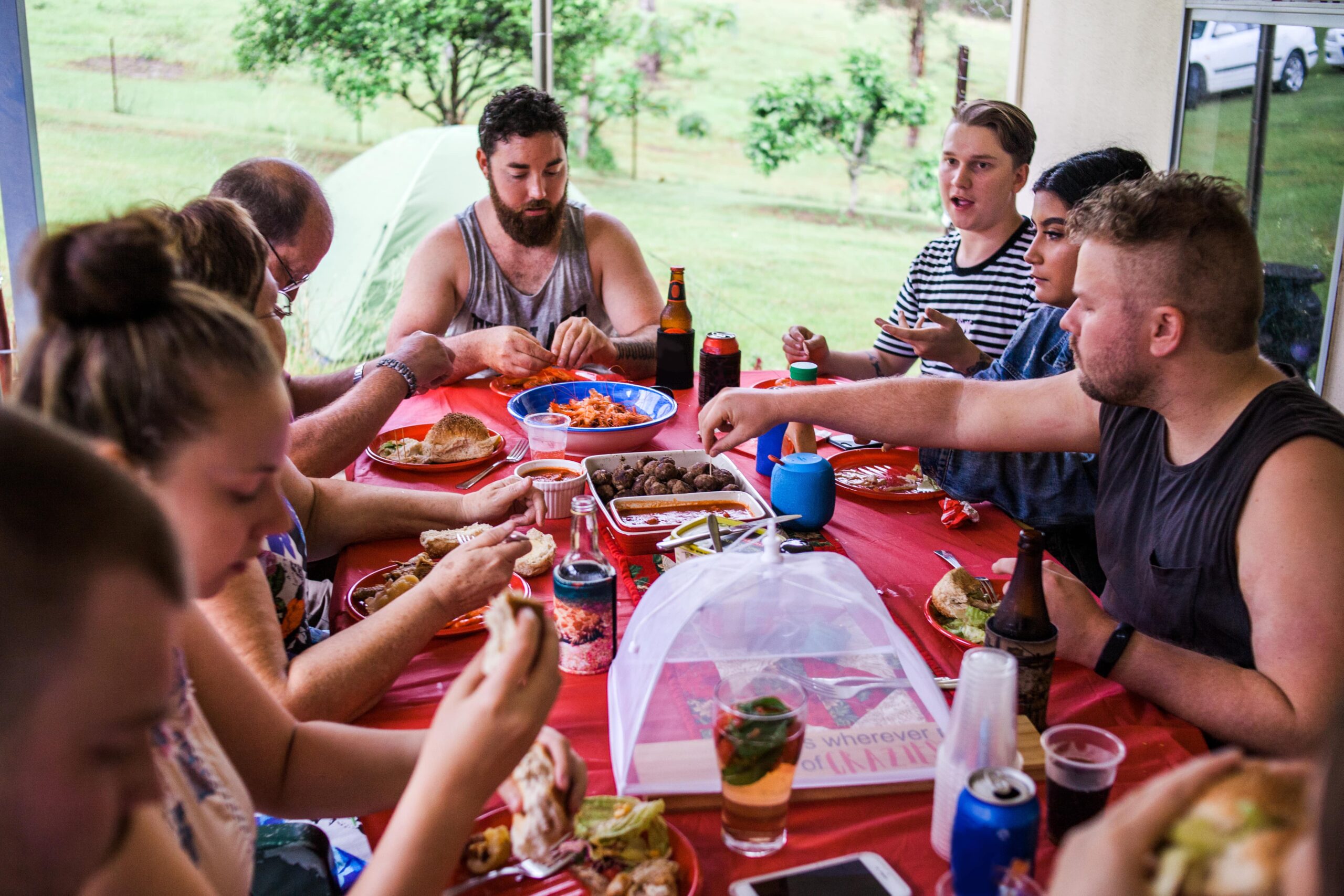Quality family time can result in strong and supportive family relationships. This can play a significant role in improving people’s mental health and wellbeing. Families with strong bonds tend to have fun when they’re together and enjoy each other’s company. This can cause chemicals like dopamine and oxytocin (feel good chemicals) to release in our bodies and help us feel more connected and closer to our loved ones.
Spending quality time with your family can help build strong relationships, making it easier to navigate times of change, difficulties or conflict. Quality family time has also been linked to improved behaviours of children.

Family time can be fun
Life can be stressful. Therefore, it’s important to maintain balance and make time for fun. As a family, you can consider your mutual interests and plan time to do this with one another. You can do this by asking your loved ones about what they would like to do. Activities don’t need to be expensive. Going to a beautiful spot in nature and having a picnic, or throwing a ball with the kids, are great fun and costs little. There are also websites that have lots of different ideas about free or low-cost activities.
Socialising with extended family, other families and friends
Socialising and connecting with your wider community is fun and prevents social isolation. It helps us to feel a sense of belonging and can contribute to good mental health and wellbeing. Research literature has found a strong correlation between strong mental health outcomes and supportive social circles. Socialising with other people can also serve to widen our perspectives and we can learn new things.
Helping others
When helping those in need, it can help us feel good about ourselves. Whether it be baking a cake for an elderly neighbour, or helping a friend mow their yard, doing these activities can teach us and our children the value of focusing on something other than ourselves.
Family time means talking with each other
Some people may seem like they were born to talk and never stop, and others prefer silence. It’s probable that you would have people that fit both descriptions in your family. Regardless of whether you naturally like talking or not, talking with your family has benefits, such as building stronger relationships.
This doesn’t mean you have to engage in deep and meaningful conversations with your loved ones all the time. It could just mean taking a few minutes of your day to ask them how they are doing and saying a few encouraging words about something that you appreciate about them. You might also consider talking to them about some of the good times or memories you’ve shared together.
If you’re a parent, you might consider taking the time to ask your children about what is going on in their lives or what they might be interested in. You could ask them for their opinions on things, talk about what their thoughts and feelings are on certain matters and more. These sorts of conversations can strengthen your relationship with your children and show them that you care about their opinions and value them.
If you talk with your children about their interests and ideas, then they are more likely to talk with you when times are tough for them. Being able to talk and feel supported by their parents is a big protective factor for our children’s wellbeing.
Knowing when to say nothing
When we have family time, and the intention is to enjoy each other’s company, it’s a good idea not to bring up difficult or painful topics. Sometimes our child or partner may do something that we find annoying, but it’s probably not helpful at these times to criticise or name call. Knowing when to say something and knowing when to keep quiet can be difficult at times.
Sometimes in relationships we can get into the habit of ‘fault finding’, however, it can re-energise relationships when we start to see all the good things the other person is doing, rather than all the wrong things. Be on the look-out for great things about a person and try telling them sometimes.
What type of relationship do I want with my family?
The amount of time you spend with your family doesn’t necessarily mean that it’s quality time. You might benefit from trying to increase the positive interactions you have with one another than decrease the negative ones.
As parents, we are role models for our children and it’s not uncommon for them to want to copy our actions and behaviours throughout their lives. This can relate to the way we talk and act. Thus, it helps to be mindful of our own actions and behaviours and ask ourselves some of the following questions, as our behaviour can be shaped by our beliefs on certain matters.
- What type of relationship do I want with my children?
- What are important values for me? (These might be things like kindness, respect, honesty, fun, being genuine, etc.)
- Am I where I want to be in terms of my parenting? If not, what can I do that will take me closer?
More information about parenting and family dynamics
If you’re looking for support on parenting and improving family dynamics, we provide a range of programs and resources for families of all shapes and sizes who want to improve or achieve their goals. We do this within a child-focused framework. Call 1300 114 397 to learn more about the services best suited to your needs.